Search
Remove Ads
Advertisement
Summary 
Loading AI-generated summary based on World History Encyclopedia articles ...
Search Results
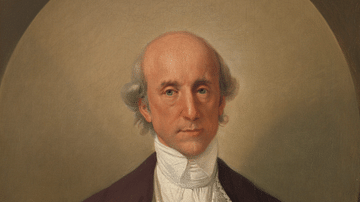
Definition
Warren Hastings
Warren Hastings (1732-1818) was appointed the Governor of Bengal by the British East India Company (EIC) in 1772 and became its first Governor-General in India from 1774 to 1785. Under his tenure, the EIC ruthlessly expanded its territory...
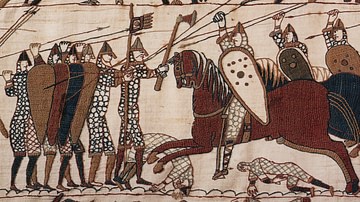
Definition
Battle of Hastings
The Battle of Hastings in south-east England on 14 October 1066 saw the defeat of the Anglo-Saxon king Harold II (r. Jan-Oct 1066) by the invading Norman army led by William, Duke of Normandy (reigned from 1035). After a day of heavy fighting...
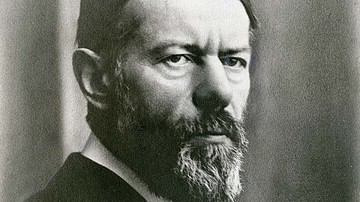
Image
Max Weber
Max Weber (l. 1874-1920), German sociologist, photo by Ernst Gottmann, 1918.

Image
Valhalla by Max Brückner
Artist imagination of Valhalla, Odin's hall of fallen warriors (Einherjar). Unlike Hel that was a rather gloomy and dark place, Valhalla was a blissful after-life location. Here souls were looked after by Valkyries who served them mead...
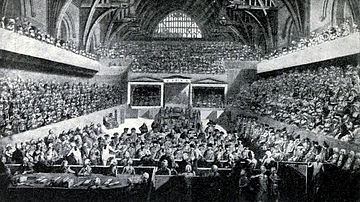
Image
The Trial of Warren Hastings
An illustration of the public trial of Warren Hastings (1732 - 1818) in Westminster Hall from 1787. Hastings was a colonial administrator and the first Governor-General of the East India Company. He was impeached by Parliament for corruption...

Image
Norman Cavalry at Hastings, Bayeux Tapestry
A scene from the 11th century CE Bayeux Tapestry showing the Battle of Hastings in 1066 CE. (Centre Guillaume le Conquérant, Bayeux, France)
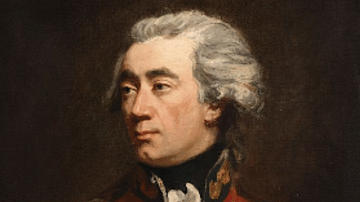
Image
Marquess of Hastings
A 19th-century portrait by Martin Archer Shee of Francis Rawdon, 1st Marquess of Hastings. An experienced military commander, Rawdon was made Governor-General of the East India Company in 1813, a position he held until 1823. (National Gallery...

Definition
Edmund Burke
Edmund Burke (1729-1797) was an Anglo-Irish statesman and political thinker. His most famous work is Reflections on the Revolution in France a critique of the social and political turmoil in that country in the final decade of the 18th century...
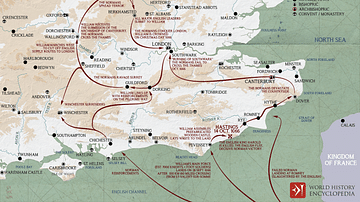
Article
William the Conqueror's March on London
William the Conqueror (r. 1066-1087 CE) was victorious at the Battle of Hastings in October 1066 CE, and Harold Godwinson, King Harold II of England (r. Jan - Oct 1066 CE) was dead. The English throne and kingdom were there for the taking...

Definition
Norman Conquest of England
The Norman Conquest of England (1066-71) was led by William the Conqueror who defeated King Harold II at the Battle of Hastings in 1066. The Anglo-Saxon elite lost power as William redistributed land to his fellow Normans. Crowned William...